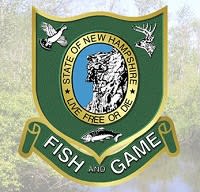New Hampshire 2014 Wildlife Action Grants Available
OutdoorHub 12.03.13

Teachers and community members interested in involving youth to make a difference for wildlife through habitat projects on schoolyards, public areas or community lands can apply to the Homes for Wildlife Action Grant Program for start-up funds. This New Hampshire Fish and Game Department program provides mini-grants of $300-$600. Habitat projects create spaces for outdoor learning, and can range from a butterfly garden to shrubs for birds to a pond for amphibians – your imagination is the limit.
The deadline for submitting proposals is February 1, 2014. For a proposal packet, visit http://www.wildnh.com/Education/project_HOME.html and download the packet, or write to Marilyn Wyzga, Public Affairs Division, N.H. Fish and Game Department, 11 Hazen Drive, Concord, N.H. 03301; email marilyn.wyzga@wildlife.nh.gov; or call 603-271-3211.
The Homes for Wildlife Action Grant Program is designed to support students, educators and community members in projects that create or enhance habitat for wildlife, and to provide inquiry-based, hands-on learning opportunities. The grant program is funded by the Conservation License Plate fund (moose plates), through the Nongame and Endangered Wildlife Program at Fish and Game. Each applicant may request up to $300, or up to $600 if a dollar-for-dollar match can be provided by the school or organization for any amount over the initial $300. A match is not required for the first $300.
Grants are available to teachers, educators, school staff and community members, especially those trained in Project WILD or Project HOME or who have a member of one of these programs on their project team. Project HOME is an award-winning schoolyard habitat program coordinated by Fish and Game. Project WILD is a K-12, interdisciplinary program about wildlife and the environment.
“We’re looking for youth-driven action projects that will directly benefit wildlife,” says Marilyn Wyzga, coordinator of the Project HOME schoolyard habitat program at Fish and Game. “Projects with the best chance of long-term success involve assembling a team of staff, students, community members and resource professionals.”
Examples of past projects funded by Wildlife Action Grants include:
- The Lebanon Middle School received $600 to work in a woodland adjacent to the school to remove invasives, plant woodland natives alongside a new trail, and amend a wetland with suitable native plants to benefit local wildlife.
- The Canterbury Elementary School was awarded $600 to plant shrubs, perennials and annuls to establish a pollinator garden, install wildlife feeding stations, and provide water for wildlife on their site.
- The Cumings Conservation Center in Deerfield was given $500 to install a pond with solar pump and supplement this area with native plants beneficial to wildlife such as birds and pollinating insects.
- The Riverbends 4-H Club received $300 to install and maintain 6 wood duck boxes in the Connecticut River Oxbow.
Grant applications will be evaluated by Project HOME staff and biologists and educators from the N.H. Fish and Game Department. Grant recipients are required to evaluate the progress of their project within six months of the award. Recipients may apply for grants in subsequent years if additional funding is necessary, and also may apply for funds for new projects.
For more resources for teachers from the New Hampshire Fish and Game Department, visit http://www.wildnh.com/Education/education.htm.

